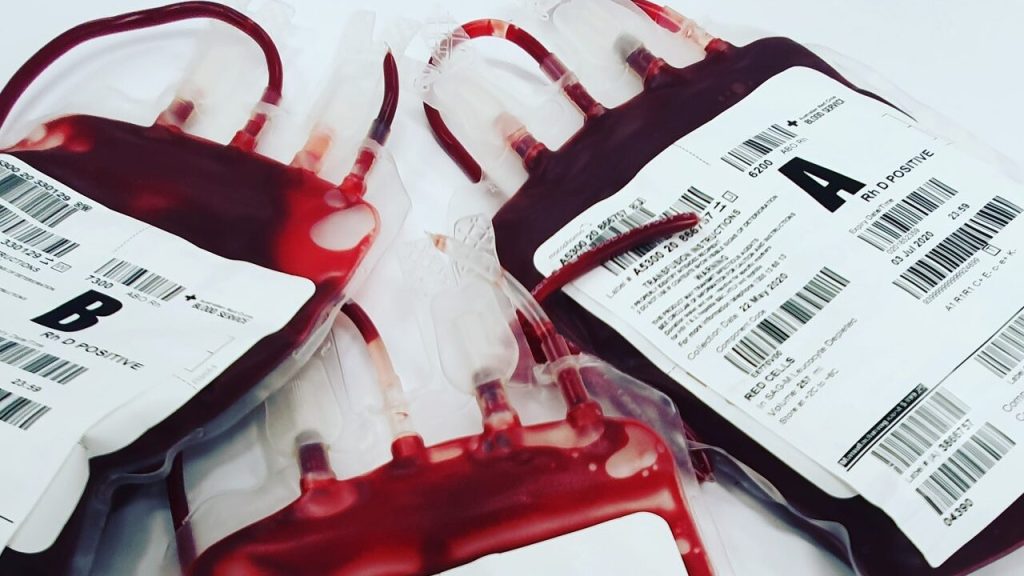
A single gene therapy injection could dramatically reduce the bleeding risk faced by people with haemophilia B, according to the results of a Phase I/II clinical trial published in the New England Journal of Medicine.
Low levels of the factor IX (FIX) protein, needed for clot formation, are behind haemophilia B. The FIX protein gene is on the X chromosome, so the severe form of haemophilia B is much more common in men, though it can occur in women due to X chromosome inactivation.
To prevent excessive bleeding, patients with haemophilia B typically need regular replacement therapy consisting of weekly injections of recombinant FIX. Despite advances in treatment, patients may continue to see debilitating joint damage.
The new treatment, from University College London, Royal Free Hospital and biotechnology company Freeline Therapeutics, is a type of adeno-associated virus (AAV) gene therapy candidate, called FLT180a, is being developed to treat severe and moderately severe cases of haemophilia B.
The Phase I/II multi-centre clinical trial, called B-AMAZE, and the related long-term follow up study found that a single treatment with FLT180a led to sustained production of FIX protein from the liver in 9 of 10 patients, across four different dose levels, removing the need for regular replacement therapy.
Out of 17 male patients aged 18 or over who underwent screening, 10 with severe or moderately severe haemophilia B took part in the 26-week trial of FLT180a, will be followed-up to assess safety and durability of FIX expression for 15 years.
Lead author Professor Pratima Chowdary of the Royal Free Hospital said: “Removing the need for haemophilia patients to regularly inject themselves with the missing protein is an important step in improving their quality of life. The long term follow up study will monitor the patients for durability of expression and surveillance for late effects.”
One patient, Elliott Mason, told the BBC: “I’ve not had any treatment since I had my therapy, it’s all a miracle really, well it’s science, but it feels quite miraculous to me.
“My life is completely normal, there’s nothing that I have to stop and think ‘how might my haemophilia affect this?’.”
AAV gene therapy works uses a packaging from the proteins found in the outer coat of the virus to deliver a functional copy of a gene directly to patient tissues. Newly synthesised proteins are released into the blood and a one-time infusion can have long-term effects.
Over several weeks to several months, patients took immunosuppressive drugs to prevent their immune systems from rejecting the therapy, and all reported known side effects.
Though the therapy was well tolerated, patients all experienced adverse events, with an abnormal blood clot in one who received the highest FLT180a dose and had the highest levels of FIX protein.
Professor Amit Nathwani, who co-authored the study, said: “Gene therapy is still a young field that pushes the boundaries of science for people with severe genetic diseases.
“The B-AMAZE long-term data add to the growing body of evidence that gene therapy has the potential to free patients from the challenges of having to adhere to lifelong therapy or could provide treatment where none exists today.”
In nine out of the ten patients, the treatment led to a sustained increase in FIX protein production, which led to a decrease in excessive bleeding. They also no longer required weekly injections of FIX protein.
After 26 weeks, five patients had normal levels of FIX protein, three had low but increased levels, and one patient treated at the highest dose had an abnormally high level.
Pamela Foulds, MD, Chief Medical Officer of Freeline, said: “The B-AMAZE long-term data continue to support our confidence that a single dose of FLT180a could protect people with haemophilia B from bleeding and the need for lifelong FIX replacement through durable expression of FIX at protective levels.”
Source: EurekAlert!

